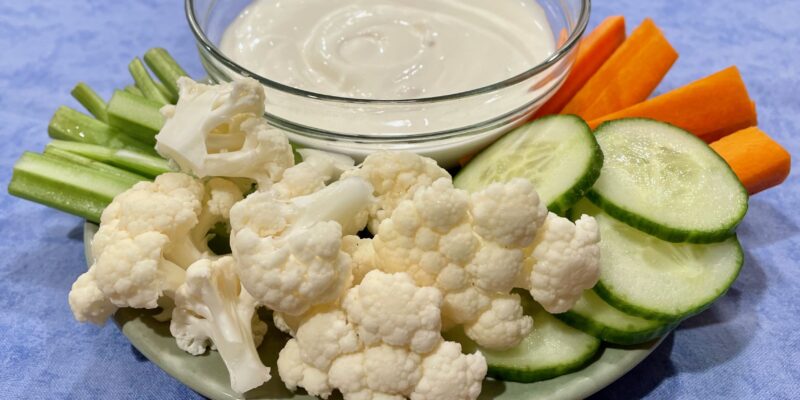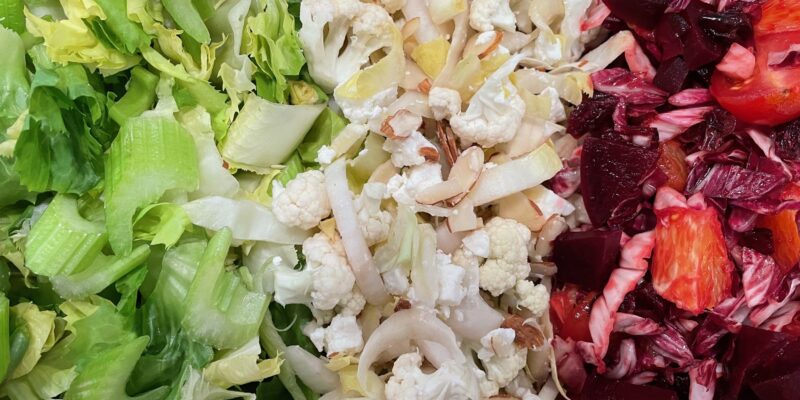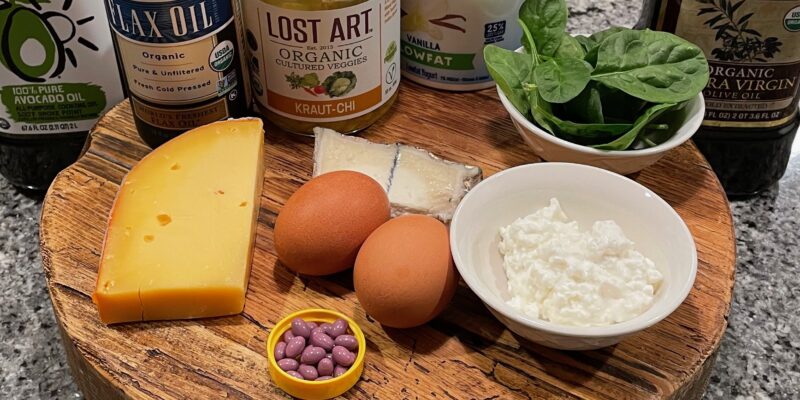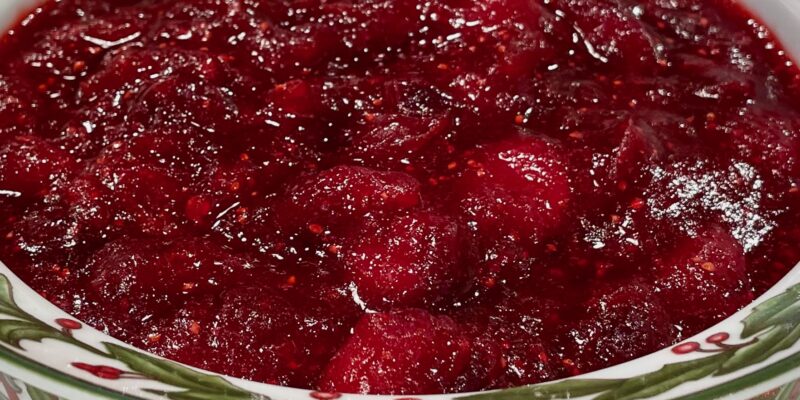Serves 4 The Hot Flash Diet TM recipe for January 2024 has been adapted from a recipe by Alison Roman for the New York Times. This version uses laughably small amounts of curry compared to most recipes, but for novices, it might be a nice introduction to curries. Curry has a very “warm” thermal property […]
RAW VEGETABLE PLATTER AND AIOLI RE-IMAGINED DIP
The Hot Flash DietTM recipe for New Year’s Eve uses vegetables with “cold,” “cool,” or “neutral” thermal properties according to Traditional Chinese Medicine. Most festive alcoholic beverages are “warm” to “hot,” so eating these cooler veggies will help balance the overall temperature and prevent hot flashes as well as provide some hydration. HAPPY NEW YEAR! […]
FESTIVE COLORS SALAD
The Hot Flash DietTM recipe for December 2023 is festive in coloration and has a “cool” overall thermal property according to Traditional Chinese Medicine. This red, white, and green salad presentation is perfect for a Christmas dinner or an Italian festival, displayed either in concentric layers in a large wide bowl or in stripes within […]
VITAMIN K2: The Vitamin You Don’t Know About, But Should
If there was a vitamin that could help you maintain bone strength, improve cardiovascular health, and perhaps protect brain function, wouldn’t you want to know about it? For many decades, vitamin K was thought to be required only for blood coagulation, but a separate form of vitamin K—K2—has roles in bone, heart, and perhaps, brain […]
Cranberry Sauce
The Hot Flash DietTM November recipe is just in time for Thanksgiving. Traditionally served alongside turkey, cranberry sauce is an excellent choice to “cool out” grilled meats or game since cranberries have a”cold” thermal property according to Traditional Chinese Medicine. You can buy cranberries at season’s start, place in a freezer bag, and freeze for […]
THE RIGHT STUFF: Choosing Vaginal Lubricants & Moisturizers
Experiencing hot flashes during the menopause transition is bad enough, but coincidental vaginal dryness removes the spontaneity from sex, predisposes to urinary issues, causes vaginal itching, and, for some, makes it uncomfortable to sit on our fannies. As estrogen diminishes during perimenopause, the vaginal lining thins, and its walls lose their folds. These changes were […]






